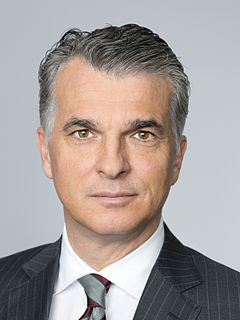A Quote by Uday Kotak
Our entire approach to the banking and financial services business is risk-adjusted returns. We believe that in most parts of the world, and including pockets in India, banking tends to mis-price risk.
Related Quotes
Innovation has stalled in the banking industry. While the rest of the world is in the digital age, banking remains stagnant. We are here to change this and bring banking to the 21st century. We will ensure our customers feel involved in the progress of this bank and are offering them a truly enjoyable banking experience – different from anything they have experienced before.
Repeal the entire Banking Act of 1933, and Austrian School economists will cheer, especially if the current system were replaced by a 100%-reserve competitive banking with no central bank. That banking reform would give us a sound money system, meaning no more business cycle, bailouts, or inflation.
Given the central role of effective, firmwide risk management in maintaining strong financial institutions, it is clear that supervisors must redouble their efforts to help organizations improve their risk-management practices...We are also considering the need for additional or revised supervisory guidance regarding various aspects of risk management, including further emphasis on the need for an enterprise-wide perspective when assessing risk.
Essentially, not only do we believe in this myth of 'de-risking', but it has become the one overriding goal; de-risking above growth, de-risking above innovation, de-risking above everything else. And we've reached the point where the Fed is using $70 Billion a month to 'de-risk' a largely insolvent banking system. And this can only end badly. The idea that you can do capitalism without risk is ridiculous on its face.
As value investors, our business is to buy bargains that financial market theory says do not exist. We've delivered great returns to our clients for a quarter century-a dollar invested at inception in our largest fund is now worth over 94 dollars, a 20% net compound return. We have achieved this not by incurring high risk as financial theory would suggest, but by deliberately avoiding or hedging the risks that we identified.
By means of the banking system the distribution of capital as a special business, a social function, is taken out of the hands of the private capitalists and usurers. But at the same time, banking and credit become the most effective means of driving captialist production beyond its own limits and one of the most effective vehicles of crises and swindle.

































